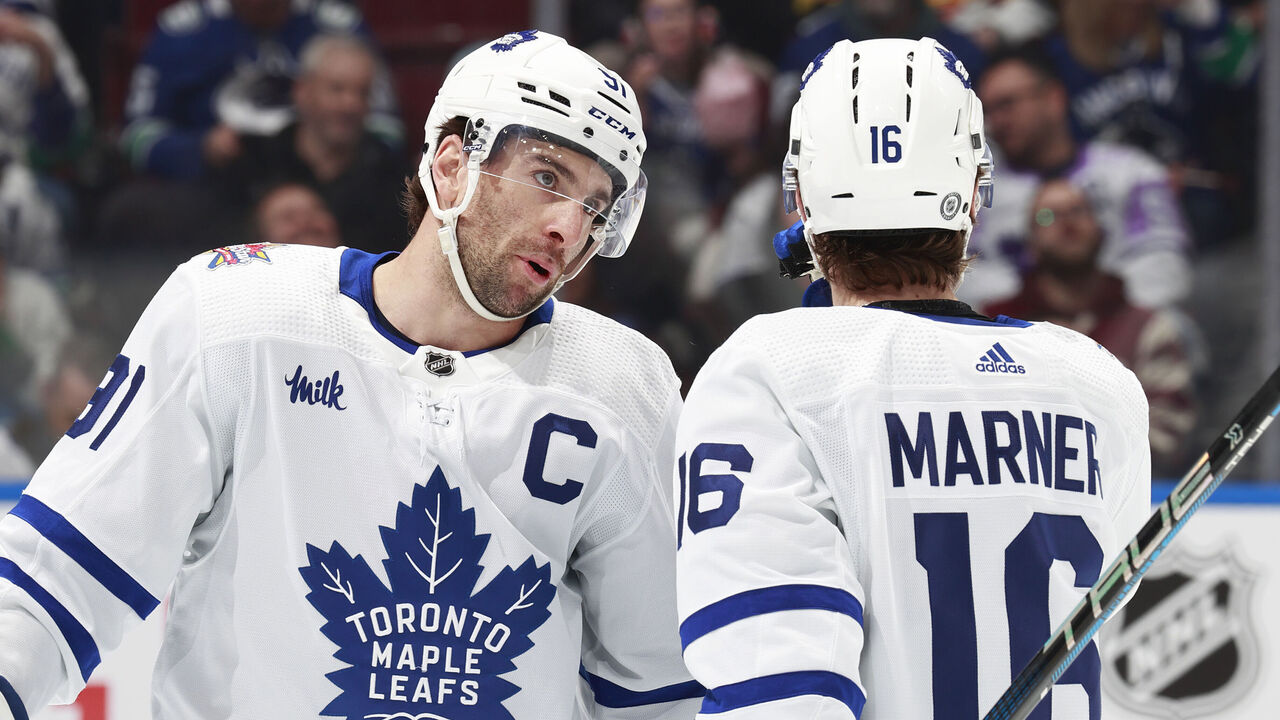Is it us? The challenge of building pro rosters in Canada
Sidney Crosby's new contract extension with the Pittsburgh Penguins will pay him an average of $8.7 million per year, like his current deal, and matching his jersey number, which represents his birthdate, Aug. 7, 1987.
Aside from the fascinating possibility of what his Hall of Fame career might have looked like from a contract perspective if he was born on, say, April 3, the Crosby deal set an unusual bar because it comes in advance of what is expected to be a contract extension for Connor McDavid, who it turns out couldn't win the Stanley Cup Final by himself, although he came quite close.
McDavid is widely assumed to become the highest-paid player in the NHL. This is a safe assumption because his Edmonton Oilers teammate Leon Draisatl over the summer signed a contract making him the league's highest-paid player with an annual salary of $14 million. And McDavid, the Oilers captain, is better.
Crosby, meanwhile, received days of gushing praise because his deal allows the Penguins to use the leftover salary cap to try to improve the team around him. Even though he's made well over $120 million in his career, the 37-year-old could have easily argued he's been underpaid for the back half of his current contract and asked the Pens for one last boffo deal. This is routinely the case in other sports, where players sign deals that pay them much more in their mid-to-late 30s than they ever made in their 20s.
But Crosby took a team-friendly deal because that's what he wanted. His average salary will place him 44th in the NHL, below players like Darnell Nurse, Carey Price, and no less than four Toronto Maple Leafs forwards.
Which brings an obvious question: Why haven't the Oilers and Leafs been able to sweet-talk such salary concessions out of their stars?
There's plainly no single answer. Crosby's a unique player who's already won everything and may as well try to have better talent around him for his sunset years. Guys like McDavid and Auston Matthews have re-upped while still young, and their teams are paying for the peak production years.
But there's also one other thing worth asking: Is it Canada?
Canada's professional teams have always faced challenges with their finances for the simple reason they take in revenue in Canadian dollars but pay salaries in more valuable U.S. currency. It's also true that income-tax rates are generally higher in Canada than in the U.S.
But ongoing court cases may make the challenges greater: the Canada Revenue Agency is protesting the tax treatment applied to the signing bonus John Tavares received when he first signed with the Leafs, while separately the CRA is protesting the use of certain tax shelters by former Toronto Blue Jays like Jose Bautista and Russell Martin. One news report from July that explored the differences in taxation rates paid by pro athletes used a colorful "anywhere but Canada" quote from a player agent.

It's a challenge the Blue Jays and Toronto Raptors know well. As the only Canadian outposts in their leagues, they've long had to work hard to convince players that signing north of the border isn't a mistake. Reports suggested that when Jays management made its big free-agent splash in luring George Springer to Toronto for $150 million in 2021, they were tens of millions above any other suitors.
Raptors president Masai Ujiri, meanwhile, made it something of a mission to transform Toronto's reputation in NBA circles from the weird, cold, foreign place to a desirable location. While he's never landed the superstar free agent (unless via trade), he can at least point to this summer's megadeals for Scottie Barnes and Immanuel Quickley as proof Toronto is no longer a place talented Americans seek to leave at the first opportunity.
The NHL situation is different, in part because there are so many more Canadians in it, but also because hockey's a bigger deal in Canadian markets than it is in most American cities. Not every player loves this aspect of playing in Canada, but guys like Mark Scheifele in Winnipeg and Elias Pettersson in Vancouver have embraced being in a hockey-mad town as they signed giant contract extensions with their teams.
And if taxation rates were such a big part of an athlete's contract deliberations - if take-home pay was the deciding factor - that doesn't explain why so many high-profile stars happily signed massive contracts in places like New York and California that have much higher state-tax rates than places like Florida and Texas.
In the end, there are many moving parts with any contract, and an athlete with a good accountant can almost certainly figure out some way to maximize income, regardless of the tax jurisdiction of the team they play for.
Still, it's hard to not look at the scoreboard, where Canada's Stanley Cup drought rolls past 30 years and neither the Jays nor Raptors look close to contention, and wonder if financial pressures haven't made an already tough job that much harder.
Scott Stinson is a contributing writer for theScore
HEADLINES
- Kaprizov breaks Wild's all-time goals record in win over Lightning
- Stars extend franchise-record winning streak to 10 with romp over Flames
- Predators' O'Reilly exits with cut near eye, expected to be OK
- Grizzlies' Edey undergoes season-ending ankle surgery
- Ant goes off for 41 as T-Wolves top Grizzlies for 4th straight win